第20回年次大会
日本語用論学会第20回大会(20周年記念大会)
The Annual meeting of the 20th Pragmatic Society of Japan
「語用論のこれまでとこれから ―学会20年の歩みとともに―」
語用論学者としてオースティン、サール、グライスらが想起される頃から数十年が過ぎ、現代の語用論は研究の対象が拡大、複雑化しています。談話研究、会話分析、ポライトネス、メタファーなど、言語と社会、言語と認知を探究する方向へ、また、英語学の一分野といった位置づけから、対象言語も日本語や世界のさまざまな言語へ、さらに、文脈を伴った実例の重要性に対する認識は、言語研究全般に高まりつつあります。語用論の現況を再確認するとともに、皆様とご一緒にこれからの10年、20年を展望したく思います。日本語用論学会20周年記念大会にぜひ足をお運びください。
◆日時: 2017年12月16日(土)、 17日(日)
16-17, December 2017
※15日(金)にPre-conferenceを実施します
◆場所: 京都工芸繊維大学(松ヶ崎キャンパス) KIT in Kyoto, JAPAN
60周年記念館・東3号館(旧・ノートルダム館)
〒606-8585 京都府京都市左京区松ケ崎橋上町 (アクセス)
◆大会参加費(registration fees)
会 員(members)事前申込 : 1,000 yen
会 員(members)当日申込 : 2,000 yen
非会員(non-members) : 3,000 yen
◆大会プログラム: 詳細版PDF(第3版)
The programme for the PSJ-20 : PDF (3rd version)
|
|
(13:30~受付)
|
プレコンフェレンス Pre-conference
|
|
|
9:30~ |
受付開始 REGISTRATION |
10:00〜11:50 |
20周年記念特別シンポジウム SPECIAL SYMPOSIUM 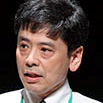  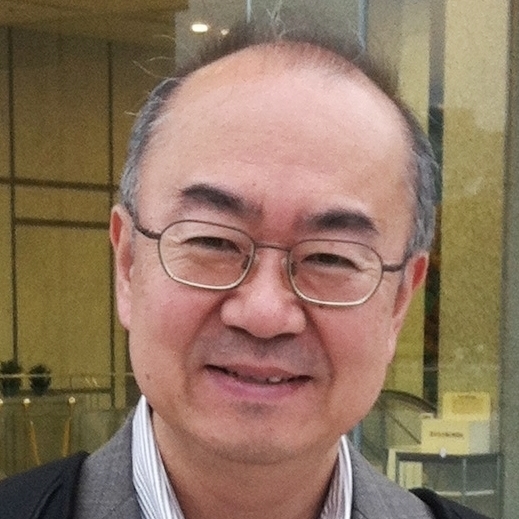
|
11:55〜13:10 |
昼食休憩 |
13:10〜15:05 |
研究発表1 GENERAL SESSIONS 1 (Prof. ZHANG)
|
15:10〜16:40 |
一般ワークショップ Workshops |
16:50〜18:20 |
|
18:30〜20:30 |
懇親会 Conference Banquet (Regular members ¥5000, students ¥4000) |
|
|
9:00~ |
受付開始 REGISTRATION |
9:30〜11:25 |
研究発表2 GENERAL SESSIONS 2 |
11:30〜12:20 |
ポスター発表 POSTER PRESENTATIONS |
|
|
昼食休憩 LUNCH |
12:50〜14:20 |
基調講演2 PLENARY 2 (Prof. Culpeper) |
14:30〜16:30 |
東アジア特別国際シンポジウム |
16:30〜16:40 |
閉会の挨拶 CLOSING |
大会期間の昼食について Information on lunch 一日目(土曜日)の昼食時は、学内の生協食堂(KIT House)が開いていますが、二日目(日曜日)は開いておらず、 また周辺にはあまり食べる場所がないので、各自昼食を準備してください。
On the first day (Saturday) the campus cafeteria (“KIT House”) is open, but since it is closed on the second day (Sunday), and worse, there are not so many restaurants around, it is certainly a good idea to bring your own lunch.
研究発表1 GENERAL SESSIONS 1 13:10〜15:05 (Dec. 16)
第1室 東3号館 K101教室 司会:久保進(松山大学)
13:10~13:45 Condolences in English and Japanese: Implications for politeness theories
ITAKURA Hiroko (Hong Kong Baptist University)
13:50~14:50 【Special Lecture】Culture-specific Face in Chinese
ZHANG Shaojie (Northeast Normal University, China)
第2室 東3号館 K201教室 司会:岡本雅史(立命館大 学)
13:10~13:45 疑問文発話の修辞性、アイロ ニー性、サーカズム
後藤リサ(関西外国語大学)
13:50~14:25 高次表意で復元されるアイロ ニー発話の乖離的態度
盛田有貴(奈良女子大学非常勤)
14:30~15:05 空耳と語呂合わせの暗記法:語用論的音韻拡張の観点から
塩田英子(龍谷大学)
第3室 東3号館 K202教室 司会:許明子(筑波大学)
13:10~13:45 インターネット掲示板における「常識」の正当化ストラテジー
ジャンカーラ ・ウンサーシュッツ(立正大学)
13:50~14:25 日韓政治ディスコースにみられる正当化のストラテジー
― 社会・政治的背景と言語的特徴の関係を中心に―
韓娥凜(大阪大学院生)
14:30~15:05 語彙的評価語の否定における規範的偏向:
“Barack Obama is the first black president of the US”の両義性をめぐって
大久保朝憲(関西大学)
第4室 東3号館 K203教室 司会:小野寺典子(青山学院 大学)
13:10~13:45 日本語とスンダ語の断り談話 における言語行動の分析
―断りに至るまでの過程を中心に ―
ノフィア・ハヤティ(金沢大学院生)
13:50~14:25 若年層のタイ語話者による人称詞の使用
松井夏津紀(奈良工業高等専門学校)
14:30~15:05 World Englishesに関するコーパス言語学的研究: GloWbEを用いた法助動詞の事例研究
中村文紀(北里大学)
第5室 東3号館 K301教室 司会:木山幸子(東北大学)
13:10~13:45 ポライトネスと利害・関心: 社会関係資本としてのママ友に注目して
大塚生子(大阪工業大学)・柳田亮吾(大阪大学)
13:50~14:25 ブラジル在住日系ブラジル人と日本人における表現の丁寧度
―依頼行動を日本語で遂行する際―
小野和信(京都外国語大学院生)
14:30~15:05 ベネファクティブ「させていただく」という問題系―質問紙調査とコーパス調査より―
椎名美智(法政大学)
第6室 東3号館 K302教室 司会:井出里咲子(筑波大学)
13:10~13:45 Rapport-oriented vs. Stance-oriented Backchannel Sequences in ELF Interactions
IKE Saya (Sugiyama Jogakuen University)
Jean MULDER (University of Melbourne)
13:50~14:25 What kinds of segmental repair are most frequent in English as a Lingua
Franca Interactions in Japan?
George O’NEAL (Niigata University)
14:30~15:05 The bars were closed until Monday. ―月曜日は営業なのか休業なのか?
明日誠一(青山学院大学非常勤)
一般ワークショップ Workshops 15:10〜16:40 (Dec. 16)
第1室 東3号館K101教室
場の語用論の試み―日本語のインテュイションに基づく解釈
植野貴志子(順天堂大学)
藤井洋子(日本女子大学)
堀江薫(名古屋大学)
片桐恭弘(公立はこだて未来大学)
井出祥子(日本女子大学)
第2室 東3号館K201教室
動的語用論の構築に向けて ― 共通基盤化(grounding)の実際を例証する―
田中廣明(京都工芸繊維大学)
吉田悦子(三重大学)
山口征孝(神戸市外国語大学)
秦かおり(大阪大学)
第3室 東3号館K202教室
認知語用論に基づくナラティブ・リアリティの解明に向けて
―語りの構造化・共話・反復から見えること
仲本康一郎(山梨大学)
岡本雅史(立命館大学)
加藤 祥(国立国語研究所)
第4室 東3号館K203教室
新規表現の語用論に対する多角的アプローチ
西村綾夏(京都大学院生)
井原駿(大阪大学院生/日本学術振興会)
板垣浩正(大阪大学院生)
黒田一平(龍谷大学/京都ノートルダム女子大学非常勤)
第5室 東3号館K301教室
Construction, Context, and Cognition: From Morpheme to Paragraph
LU Chiarung (National Taiwan University)
YEH Mei-Li (National Tsing Hua University)
TSAI I-Ni (National Taiwan University)
WANG Yu-Fang (National Kaohsiung Normal University)
David TREANOR (Shih Chien University)
LIN Meng-Ying (Research Institute for the Humanities and Social Sciences,
Ministry of Science and Technology, Taiwan)
第6室 東3号館K302教室
境界を超える語用論のポテンシャル
名嶋義直(琉球大学)
永山友子(神奈川大学非常勤)
佐藤桐子(首都大学東京院生)
山森理恵(横浜国立大学非常勤)
基調講演1 Plenary Lecture 1
16:50〜18:20 【60 周年記念館 1 階記念ホール】
Chair: HAYASHI Reiko (Konan Women’s University)
Experimental Methods in Cognitive Linguistic Critical Discourse Studies (CL-CDS)
Christopher HART (Lancaster University)
 Critical Discourse Studies (CDS) is concerned with the strategies and structures presented by text and discourse in contexts of political communication and their power in legitimating social actions, identities and relations. A number of linguistic forms have been identified as especially significant, including transitivity structures, appraisal resources and metaphor. CDS, however, has been accused of over-interpreting the pragmatic functions of these forms. In this talk, I will argue that experimental methods can be usefully deployed in CDS to verify qualitative analyses and guard against over-interpretation. I present findings from recent experimental studies in CDS.
Critical Discourse Studies (CDS) is concerned with the strategies and structures presented by text and discourse in contexts of political communication and their power in legitimating social actions, identities and relations. A number of linguistic forms have been identified as especially significant, including transitivity structures, appraisal resources and metaphor. CDS, however, has been accused of over-interpreting the pragmatic functions of these forms. In this talk, I will argue that experimental methods can be usefully deployed in CDS to verify qualitative analyses and guard against over-interpretation. I present findings from recent experimental studies in CDS.
研究発表2 GENERAL SESSIONS 2 (Dec. 17)
第1室 東3号館K101教室 司会:板倉ひろこ (Hong Kong Baptist University)
9:30~10:05 言語形式の省略に生じる語用論的効果
稲吉真子(北海道大学院生)
10:10~10:45 いかに初対面同士の会話を促 進するか?
―同年代の日本人と韓国人の会話に見られるぼかし表現とフィラー表現の分析―
許明子(筑波大学)、永井絢 子(筑波大学)
10:50~11:25 スピーチ・レベルと上下親疎の関係 ―断りの分析をもとにして̶
ボイクマン総子(東京大 学)、森一将(文教大学)
第2室 東3号館K201教室 司会:西田光一(山口県立大学)
9:30~10:05 付加疑問文をCDSで捉える― 認知語用論的アプローチによる分析―
中谷博美(金沢大学)
10:10~10:45 I {think/believe} they won’t win, will they? が認可されない語用論的理由について
森 貞(国立福井工業高等専門学校)
10:50~11:25 現代日本語における「流れ」と事象構造メタファー
松浦 光(横浜国立大学非常勤)
第3室 東3号館K202教室 司会:後藤リサ(関西外国語 大学)
9:30~10:05 「どうせ」のはたらき―「어차피 (於此彼)」との対照を通して―
金谷由美子(大阪大学院生)
10:10~10:45 自己開示場面における「なんか」の使用―直接経験を導く働きに着目して―
杉崎美生(日本女子大学院生)
10:50~11:25 日常会話における否定表現の意味と談話機能に関する研究:発話冒頭の「いや」について
李嘉(名古屋大学院生)
第4室 東3号館K203教室 司会:大塚生子(大阪工業大 学)
9:30~10:05 述部に見られる「機能」と「役割」―TVアニメにおける機能語の省略
尹盛熙(関西学院大学)
10:10~10:45 福音書における黙説の使用: Jesus を権威づけ,読者に語りかける
平川裕己(神戸市外国語大学院生)
10:50~11:25 英語法副詞における機能の拡大―主語名詞と述語動詞との関連から―
鈴木大介(摂南大学)、藤原崇(同志社大学非常勤)
第5室 東3号館K301教室 司会:George O’NEAL (Niigata University)
9:30~10:05 A Corpus-Based Analysis of Independent Although Clauses in Spoken English Discourse
MIZUNO Yuko (National Institute of Technology, Asahikawa College)
10:10~10:45 A Critical Discourse Study of Radio Interview Programs during the Occupation
Period of Japan: Changes in How Runaway Girls Perceived the Realities of
Social Inequality
OTA Nanako (Graduate student, University of Tokyo)
10:50~11:25 ‘I don’t know’ as a Confrontational Discourse marker
KIM Serom (Graduate student, Kyunghee University, South Korea)
第6室 東3号館K302教室 司会:IKE Saya (Sugiyama Jogakuen University)
9:30~10:05 On the semantics and pragmatics of utterance final particle ba in Mandarin
WANG Chiawei (Graduate student, University of Edinburgh)
10:10~10:45 Gender Intensity and Stereotype of Naming Practice in Taiwan Mandarin Chinese
LIU Nien En (Graduate student, National Taiwan University)
10:50~11:25 A Comparative Study of Refusal Strategies among Chinese Learners of Japanese
and English: Is there an L2 Centered Pragmatic Competence?
CUI Haining (Graduate student, Tohoku University)
ポスター発表 POSTER PRESENTATIONS 11:30〜12:20 (Dec. 17)
【60 周年記念館 2 階大セミナー室】 (昼食休憩を兼ねています)
1 日本語とインドネシア語におけるあいづち行動の対照研究 ―非言語行動を中心にして―
リスダ・ヌルジャレカ(金沢大学院生)
2 母語話者による「~たい」「~ほしい」疑問文の使用実態
大政美南(横浜国立大学院生)
3 get 受動態
堀内夕子(大阪キリスト教短期大学)
4 Countability Matters? A Cognitive Approach to Investigating Fillers in the "From X To Y Construction"
in English
CHUANG Huichun (Graduate student, National Taiwan University)
5 Pro-Liberal or Not: A Cognitive Analysis on Anti-Trump’s Political Protests
CHEN Alexander WH (Graduate student, National Taiwan University)
6 語彙項目の言語変化に関する基礎研究: 2010 年「流行語大賞」を例に
林智昭(近畿大学非常勤)
7 Sensitivity to pragmatic markers predicts the degree of autism and depression in older adults:
Evidence from sentence-final expressions in Japanese
KIYAMA Sachiko (TohokuUniversity),
KOIZUMI Masatoshi (Tohoku University),
YUSA Noriaki (Miyagi Gakuin Women's University)
8 ロバ文解釈における語用論の影響: 動的意味論と語用論の関係を探る
天本貴之(慶応義塾大学院生)、高谷遼平(慶応義塾大学院生/日本学術振興会)
9 Promises, Lies, and Bullshit: Speaker Intent in Linguistic Interaction
Chad NILEP (Nagoya University)
10 程度副詞の「ちょっと」の意味解釈に関する音声的要因について
呂妍(早稲田大学院生)
11 日本語名詞句の形式特性が文解釈に及ぼす効果について
中井延美(明海大学)
基調講演2 Plenary Lecture 2
12:50〜14:20【60 周年記念館 1 階記念ホール】
Chair: SHIINA Michi (Hosei University)
Historical Pragmatics: The Case of Early Modern English Negatives
Jonathan CULPEPER (Lancaster University)
 I open this talk by describing and illustrating the various strands of work that comprise historical pragmatics. I point out similarities and differences between synchronic and diachronic variation. Turning to method, I discuss the very recent and rapid rise of corpus pragmatics, a method that has been central to historical pragmatics for years. In the second half of the paper, I conduct a pragmalinguistic case study, namely, the investigation of early modern English negatives. In order to contextualise negatives, I first outline early modern affirmatives, including yes and yea, drawing upon Culpeper (forthcoming). I then turn to two key early modern negatives, namely, no and nay. I will use corpus methods to examine their contexts of use. I will also consider multiple negation. Throughout this talk I will endeavour to connect with issues of general concern in pragmatic studies.
I open this talk by describing and illustrating the various strands of work that comprise historical pragmatics. I point out similarities and differences between synchronic and diachronic variation. Turning to method, I discuss the very recent and rapid rise of corpus pragmatics, a method that has been central to historical pragmatics for years. In the second half of the paper, I conduct a pragmalinguistic case study, namely, the investigation of early modern English negatives. In order to contextualise negatives, I first outline early modern affirmatives, including yes and yea, drawing upon Culpeper (forthcoming). I then turn to two key early modern negatives, namely, no and nay. I will use corpus methods to examine their contexts of use. I will also consider multiple negation. Throughout this talk I will endeavour to connect with issues of general concern in pragmatic studies.
東アジア特別国際シンポジウム 14:30〜16:30
【60 周年記念館 1 階記念ホール】
East Asian Special International Symposium
Pragmatics in East Asia: Its practice and contribution
Chair: KITANO Hiroaki (Aichi University of Education)
Subjectification of the English Booster "awfully": A Corpus-Based Study
ZHAN Quanwang (Anhui University)
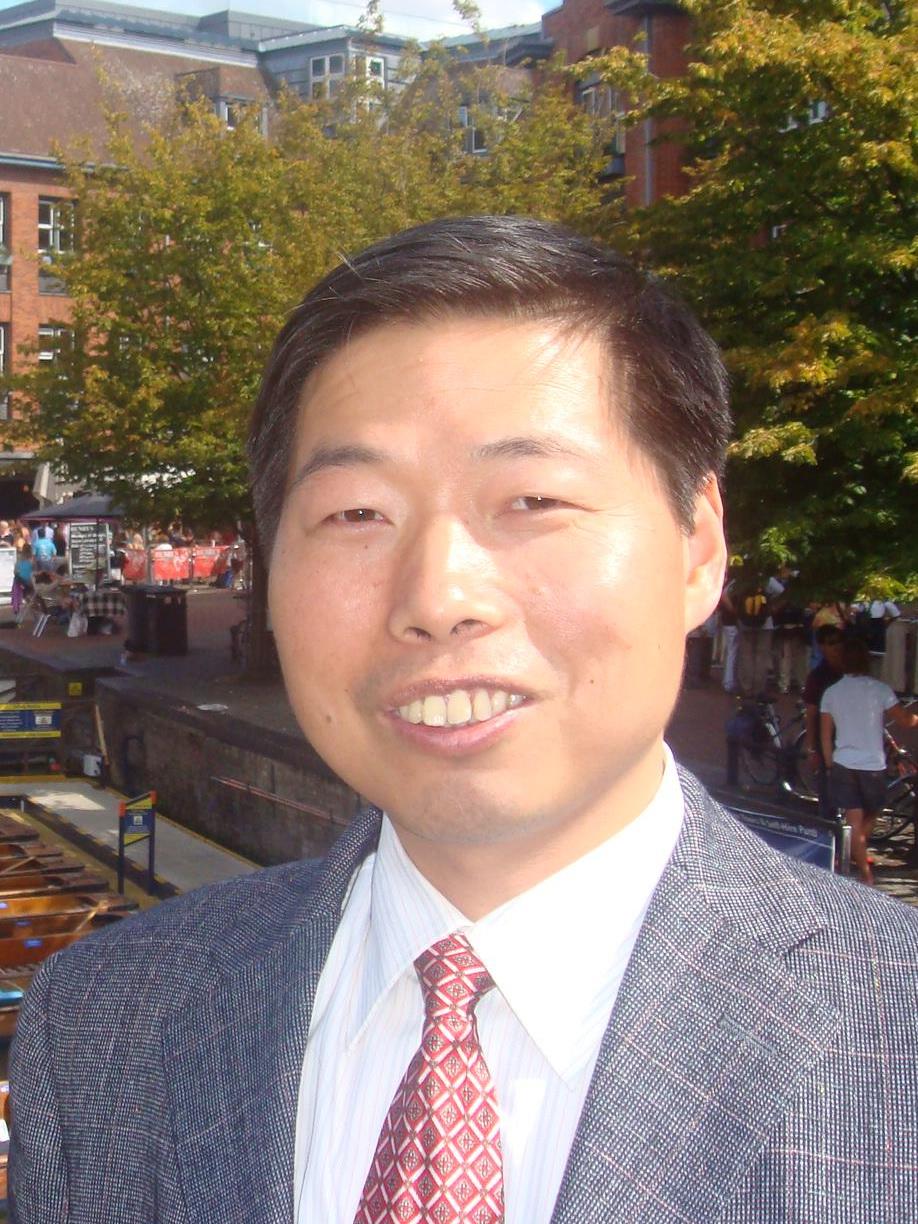
Based on English Literature Corpus, this paper makes a diachronic study of the semantic change of the English booster awfully. The results show that the semantic change of awfully is a process of subjectification; the process consists of three stages – the initial stage (1759-1818), the transitional stage (1819-1870) and the subjectification stage (1871-); subjectification of awfully is embodied in four shifts – from a propositional function to a discourse function, from an objective meaning to a subjective meaning, from a sentence subject to a speaker subject, from a free form to a fixed form; the fundamental mechanism of subjectification of awfully is repetition.
References:
Carey, K. 1995. “Subjectification and the development of the English perfect.” In D. Stein and
S. Wright, eds., Subjectivity and Subjectivisation. Cambridge: Cambridge University
Press. pp. 83-102.
Berg, R. Dirven and Panther, K.-U., eds., Motivation in Language: Studies in Honor of Günter
Radden. Amsterdam/Philadelphia: John Benjamins.
The Structures, Meanings and Functions of Conditional Clauses
in Spoken and Written Chinese Discourse
WANG Yu-fang (National Kaohsiung Normal University)
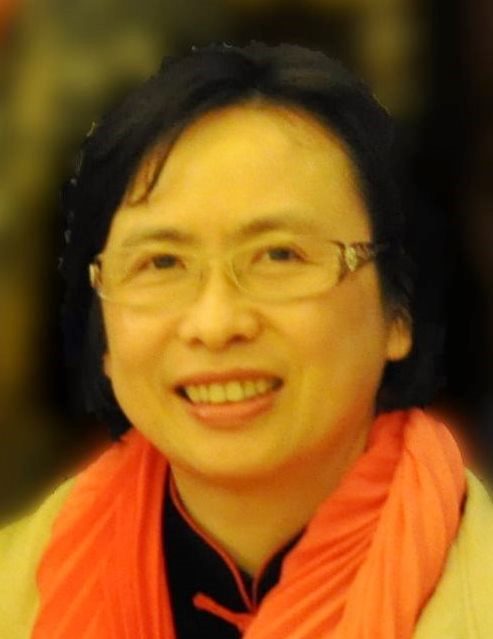
The study reported in 2017 PSJ attempts to explore the functions of the four types of Chinese conditionals (i.e. factual, probable, improbable, and counterfactual) across two discourse modes: daily conversation and news reportage articles, which occur in informal and formal speech situations separately. In particular, it examines what are the various types of conditional clauses in relation to the initial and final positions with respect to their matrix clause, frequently occurring in spoken and written discourse. The spoken corpus came from naturally occurring two-party or multi-party conversations, totaling 90 hours 37 minutes 25 seconds; the written corpus came from UDNDATA, a newspaper database of the United Daily News group in Taiwan, from Sep. 1, 2012 to Sep. 7, 2016. It is well recognized that English makes grammatical distinctions among the different types of conditionals in the auxiliary verbs and tense and aspect markers they can or must take, but Mandarin Chinese has no such grammatical distinctions. The result shows that different Chinese conditional markers are used by the speaker/writer as signposts to guide the hearer/reader into an imaginary world between factuality and counterfactuality.
References:
Haiman, John 1978. Conditionals are topics. Language 54, 564-589.
Akatsuka, Noriko. 1985. Conditionals and the epistemic scale. Language, 61(3): 625-639.
Grammaticalization and Pragmatic Inference: The Case of Insubordination
RHEE Seongha (Hankuk University of Foreign Studies)
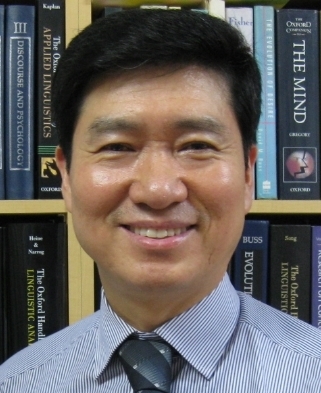
Mechanisms operating in grammaticalization of linguistic forms are many and varied, but pragmatic inference is among the most prominent forces that enable linguistic forms to acquire grammatical functions. For its strategic nature, it is present in nearly all instances of interactional discourse while linguistic forms are constantly subjected to meaning negotiation. ‘Insubordination’ (Evans 2007, Evans & Watanabe 2016), or main clause ellipsis, is an example par excellence which exhibits the significant role of pragmatic inference. Speakers often employ insubordination for the benefit of locutionary economy and information enrichment. When the main clause is thus elided, the addressee actively attempts to construct it relying on the given textual and situational contexts, and the diverse relationships between the given information and the hypothesized unspoken information become semanticized on the subordinator. This paper illustrates the elegant workings of such pragmatic inferences in grammaticalization based on the data in Korean.
References:
Evans, Nicholas. 2007. Insubordination and its uses. In: Irina Nikolaeva (ed.), Finiteness:
Theoretical and Empirical Foundations, 366-431. Oxford: OUP.
Evans, Nicholas, & Honoré Watanabe (eds.). 2016. Insubordination. Amsterdam: Benjamins.
 Discussant: Jonathan CULPEPER (Lancaster University)
Discussant: Jonathan CULPEPER (Lancaster University)
◆研究発表募集要項
こちらのページをご覧下さい。
◆2017年度年次大会会場・京都工芸繊維大学への交通・宿泊について
〔交通について〕
京都駅からのアクセス
京都駅より市営地下鉄烏丸線「国際会館」行きに乗車(約18分)「松ヶ崎駅」下車、徒歩約8分
地下鉄松ヶ崎駅からのアクセス
地下鉄烏丸線「松ヶ崎」駅より徒歩約8分。(出口1から右(東)へ400m進み4つ目の信号を右(南)へ180m)
〔宿泊について〕
この時期の京都周辺のホテルは例年混み合いますので、予約は早めにお願いします。場合によっては大阪府や滋賀県のホテルでもJR京都線・琵琶湖線の沿線なら比較的短時間でご来場になれます。交通機関を確認のうえ、ご利用ください。